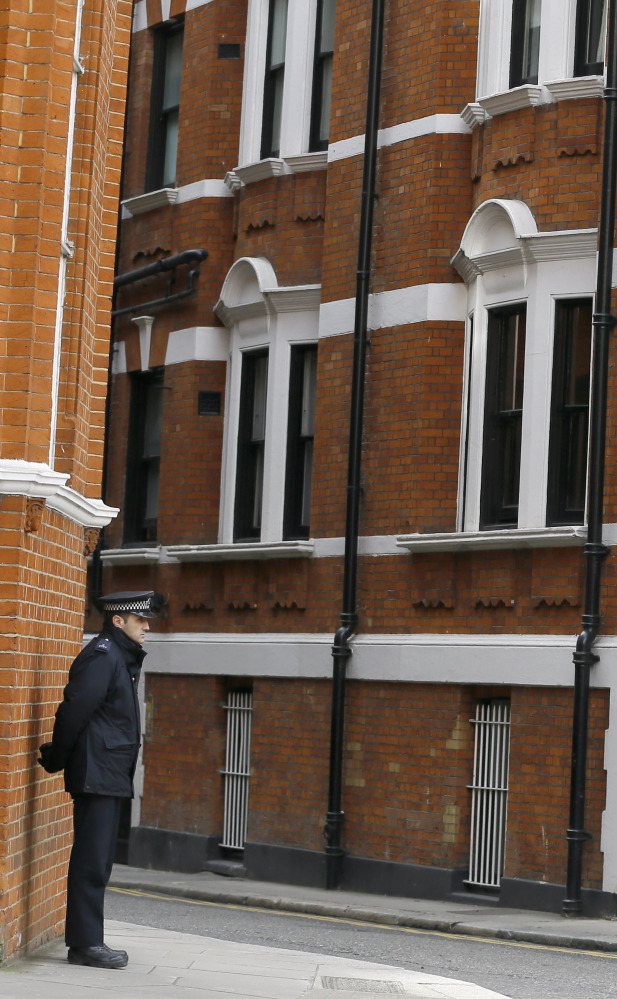LONDON — Is now the time for Julian Assange to try to make a break for it?
The British government has spent more than $19 million over the last three years trying to make sure that Assange, founder of the website WikiLeaks, doesn’t escape its clutches. Assange has been holed up in the tiny Ecuadorean Embassy in London since June 2012, a fugitive from arrest on allegations that he sexually assaulted two women in Sweden.
But authorities have apparently decided that the vigil is no longer worth it. Scotland Yard announced Monday that it was withdrawing its 24-hour presence at the embassy, which sits in one of London’s toniest neighborhoods, near the famous Harrods department store.
Not that Assange – who steadfastly maintains his innocence – isn’t still a wanted man.
“The operation to arrest Julian Assange does, however, continue, and should he leave the embassy the (police) will make every effort to arrest him,” Scotland Yard said in a statement. But “it is no longer proportionate to commit officers to a permanent presence.”
It added that the decision had “not been taken lightly” and that detectives would continue to use “a number of overt and covert tactics” to keep tabs on their quarry.
Whether he’s an exemplar of patient fortitude or of contemptible cowardice, Assange, 44, has managed to frustrate the British and Swedish governments by immuring himself within the embassy, which is treated as Ecuadorean territory.
Scotland Yard has little to show for its diligence except a huge policing bill, even as major budget cuts loom for the storied force. Its officers were powerless to lay a hand on Assange even when he appeared, Evita-like, on the embassy’s balcony, only a few feet above street level, to greet and speak to supporters.
Copy the Story LinkSend questions/comments to the editors.



Success. Please wait for the page to reload. If the page does not reload within 5 seconds, please refresh the page.
Enter your email and password to access comments.
Hi, to comment on stories you must . This profile is in addition to your subscription and website login.
Already have a commenting profile? .
Invalid username/password.
Please check your email to confirm and complete your registration.
Only subscribers are eligible to post comments. Please subscribe or login first for digital access. Here’s why.
Use the form below to reset your password. When you've submitted your account email, we will send an email with a reset code.